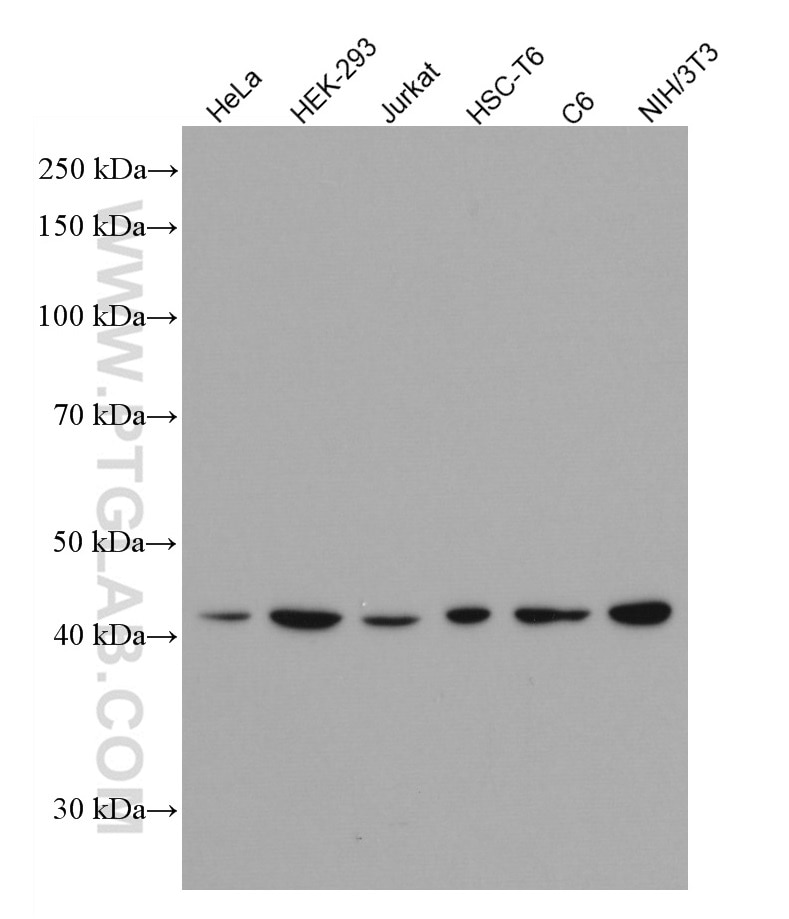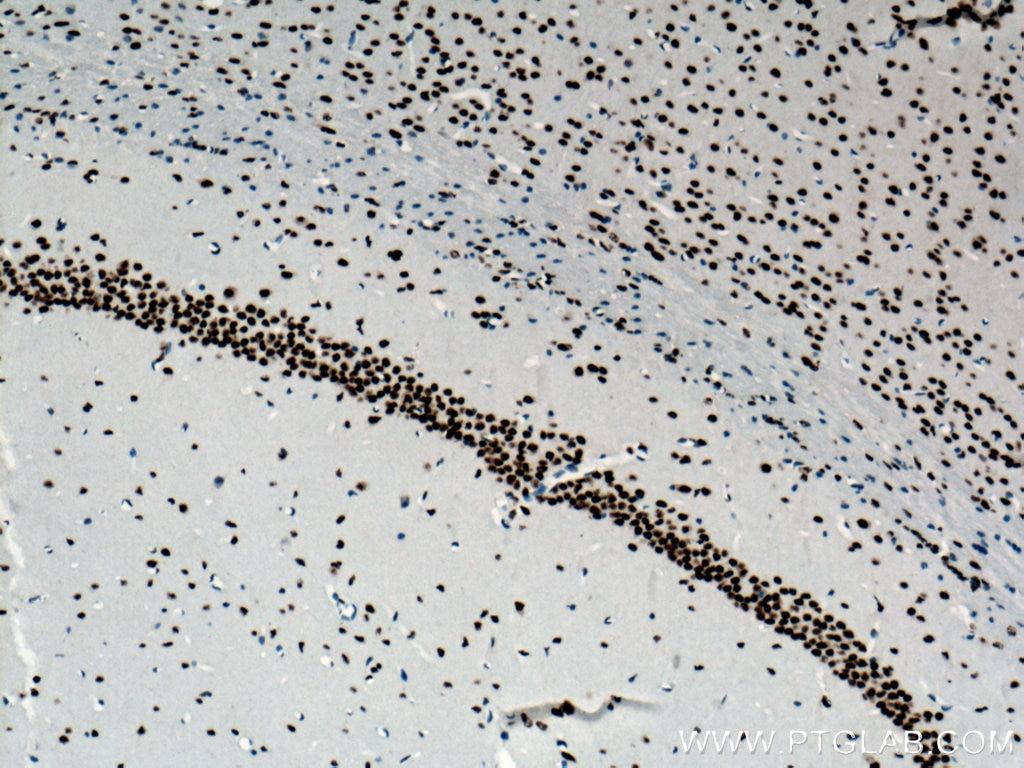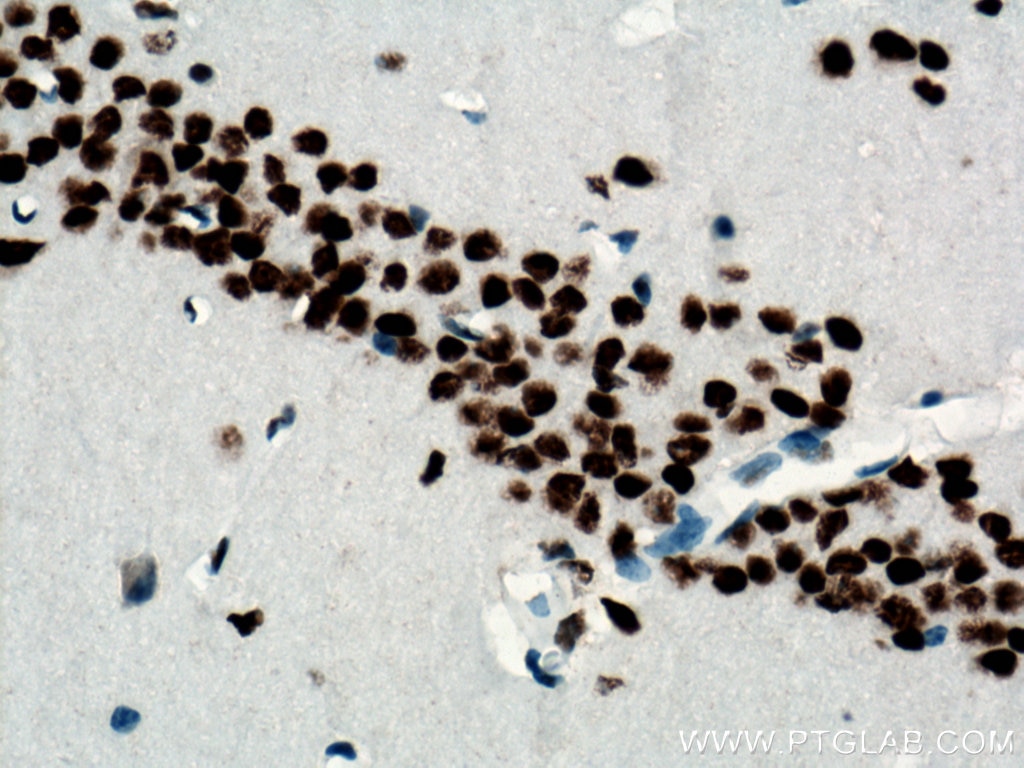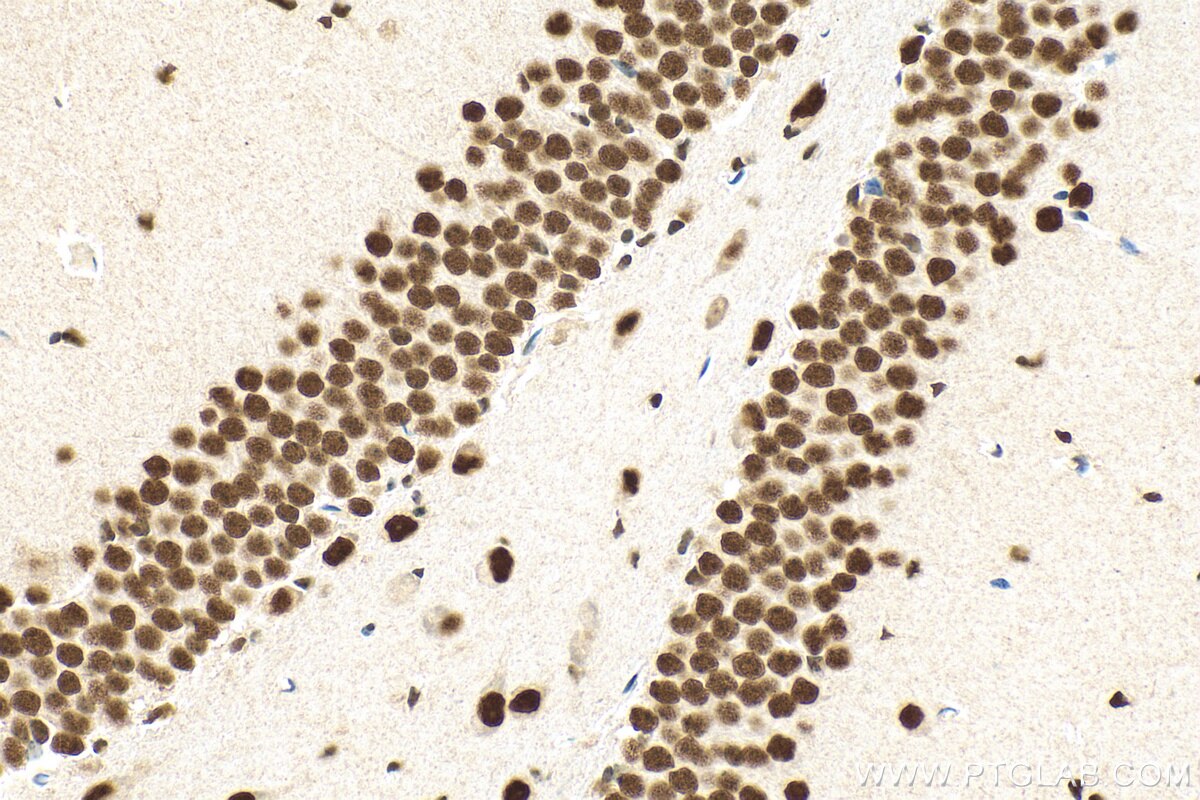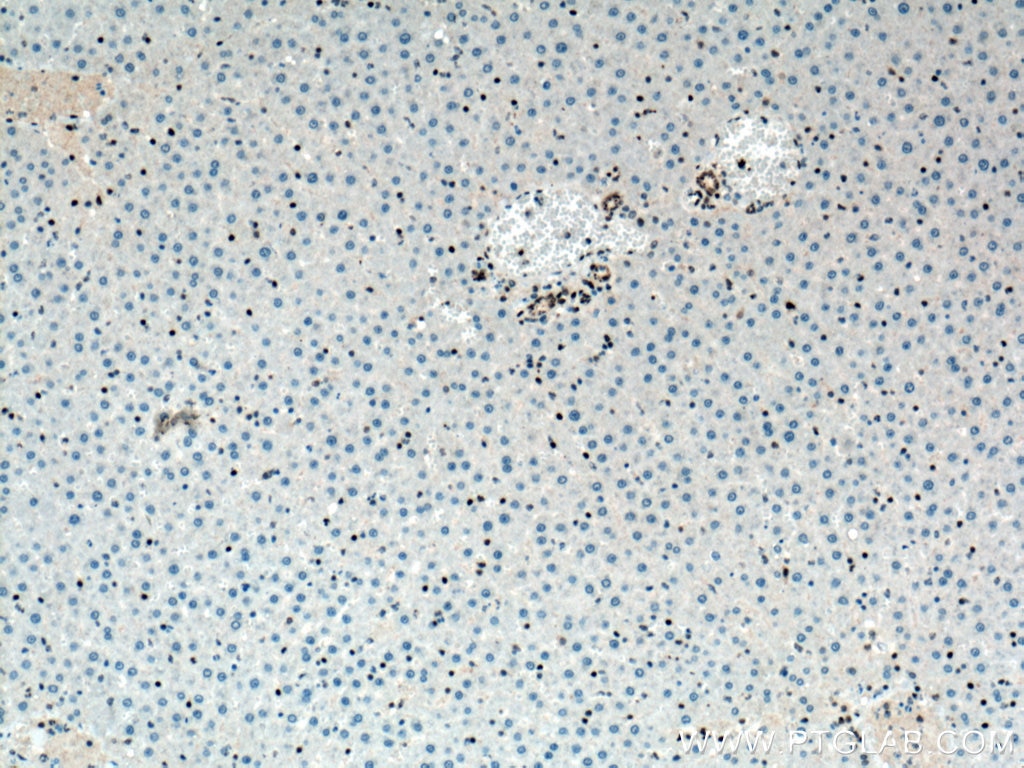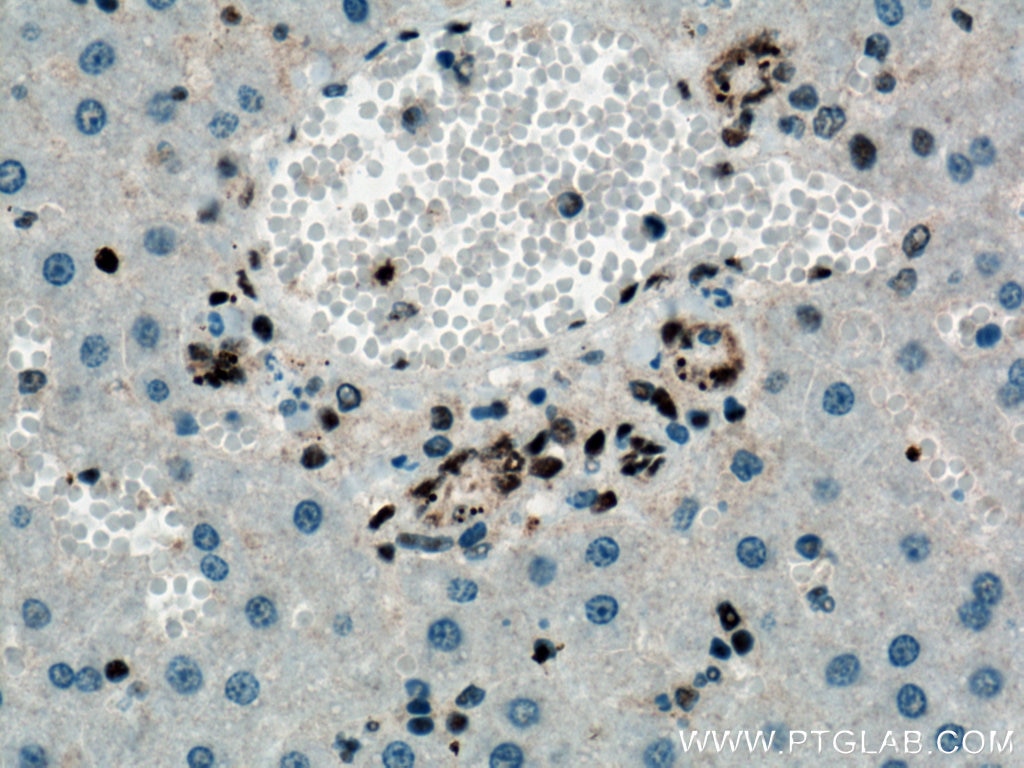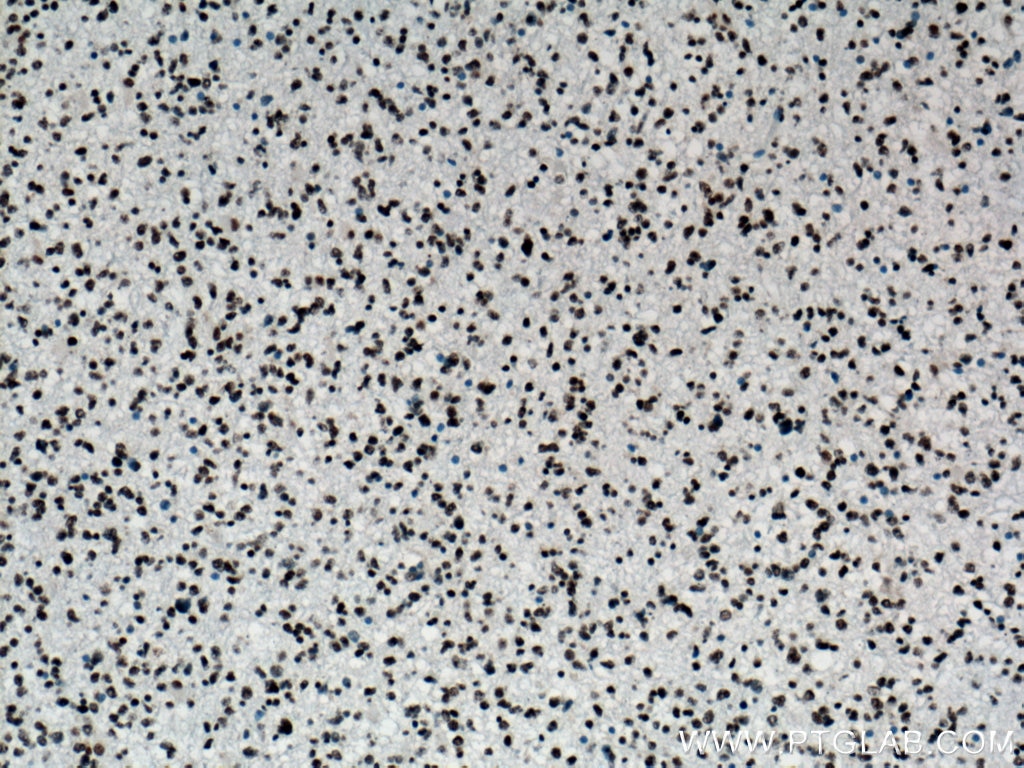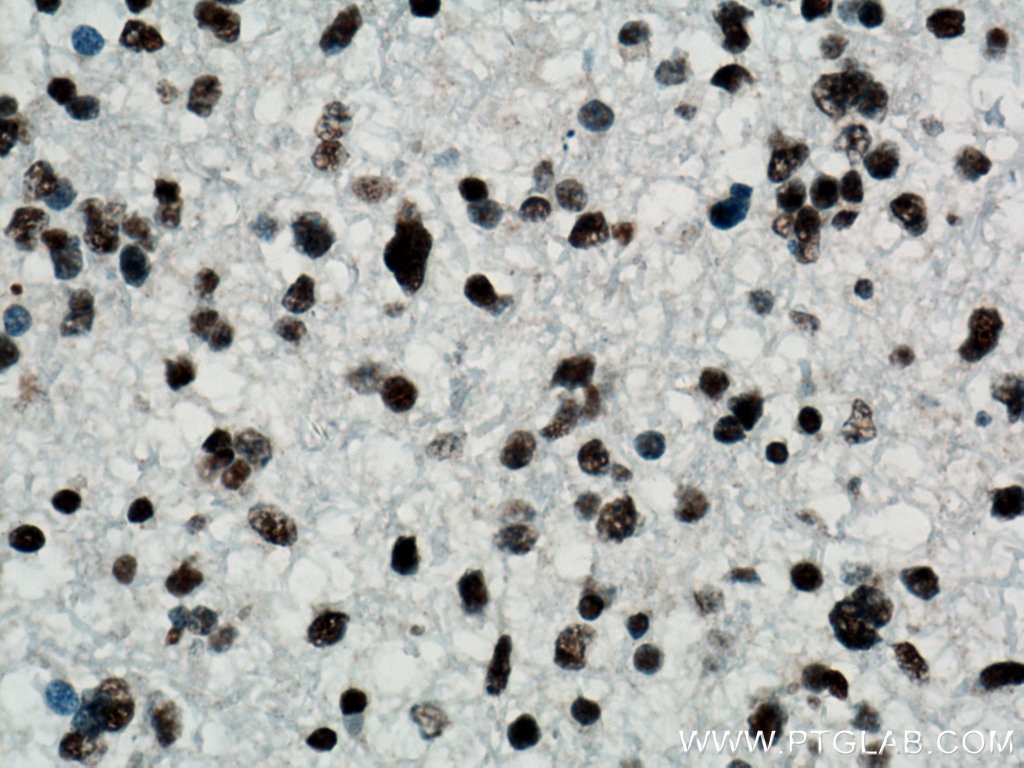TDP-43 Monoklonaler Antikörper
TDP-43 Monoklonal Antikörper für WB, IHC, ELISA
Wirt / Isotyp
Maus / IgG1
Getestete Reaktivität
human, Maus, Ratte
Anwendung
WB, IHC, ELISA
Konjugation
Unkonjugiert
CloneNo.
1G4F5
Kat-Nr. : 66734-1-Ig
Synonyme
Geprüfte Anwendungen
| Erfolgreiche Detektion in WB | HeLa-Zellen, C6-Zellen, HEK-293-Zellen, Jurkat-Zellen, NIH/3T3-Zellen |
| Erfolgreiche Detektion in IHC | Maushirngewebe, humanes Gliomgewebe, Rattenlebergewebe Hinweis: Antigendemaskierung mit TE-Puffer pH 9,0 empfohlen. (*) Wahlweise kann die Antigendemaskierung auch mit Citratpuffer pH 6,0 erfolgen. |
Empfohlene Verdünnung
| Anwendung | Verdünnung |
|---|---|
| Western Blot (WB) | WB : 1:5000-1:50000 |
| Immunhistochemie (IHC) | IHC : 1:1000-1:4000 |
| It is recommended that this reagent should be titrated in each testing system to obtain optimal results. | |
| Sample-dependent, check data in validation data gallery | |
Veröffentlichte Anwendungen
| WB | See 4 publications below |
| IHC | See 2 publications below |
Produktinformation
66734-1-Ig bindet in WB, IHC, ELISA TDP-43 und zeigt Reaktivität mit human, Maus, Ratten
| Getestete Reaktivität | human, Maus, Ratte |
| In Publikationen genannte Reaktivität | human, Maus |
| Wirt / Isotyp | Maus / IgG1 |
| Klonalität | Monoklonal |
| Typ | Antikörper |
| Immunogen | Fusionsprotein |
| Vollständiger Name | TAR DNA binding protein |
| Berechnetes Molekulargewicht | 43 kDa |
| Beobachtetes Molekulargewicht | 43 kDa |
| GenBank-Zugangsnummer | BC001487 |
| Gene symbol | TDP-43 |
| Gene ID (NCBI) | 23435 |
| Konjugation | Unkonjugiert |
| Form | Liquid |
| Reinigungsmethode | Protein-G-Reinigung |
| Lagerungspuffer | PBS with 0.02% sodium azide and 50% glycerol |
| Lagerungsbedingungen | Bei -20°C lagern. Nach dem Versand ein Jahr lang stabil Aliquotieren ist bei -20oC Lagerung nicht notwendig. 20ul Größen enthalten 0,1% BSA. |
Hintergrundinformationen
Transactivation response (TAR), DNA-binding protein of 43 kDa (also known as TARDBP or TDP-43), was first isolated as a transcriptional inactivator binding to the TAR DNA element of the HIV-1 virus. Neumann et al. (2006) found that a hyperphosphorylated, ubiquitinated, and cleaved form of TARDBP, known as pathologic TDP-43, is the major component of the tau-negative and ubiquitin-positive inclusions that characterize amyotrophic lateral sclerosis (ALS) and the most common pathological subtype of frontotemporal lobar degeneration (FTLD-U). 66734-1-Ig is a mouse monoclonal antibody recognizing the intact protein of TDP-43.
Protokolle
| PRODUKTSPEZIFISCHE PROTOKOLLE | |
|---|---|
| WB protocol for TDP-43 antibody 66734-1-Ig | Protokoll herunterladen |
| IHC protocol for TDP-43 antibody 66734-1-Ig | Protokoll herunterladenl |
| STANDARD-PROTOKOLLE | |
|---|---|
| Klicken Sie hier, um unsere Standardprotokolle anzuzeigen |
Publikationen
| Species | Application | Title |
|---|---|---|
Acta Neuropathol Neurons selectively targeted in frontotemporal dementia reveal early stage TDP-43 pathobiology. | ||
Int J Biol Sci Spreading of pathological TDP-43 along corticospinal tract axons induces ALS-like phenotypes in Atg5+/- mice. | ||
Exp Neurol Muscle-dominant wild-type TDP-43 expression induces myopathological changes featuring tubular aggregates and TDP-43-positive inclusions. | ||
Nat Commun TDP-43 proteinopathy in ALS is triggered by loss of ASRGL1 and associated with HML-2 expression | ||
J Nat Prod Phenolics and Phenolic Glycosides from Wrightia pubescens and Their Hepatoprotective Activities |
